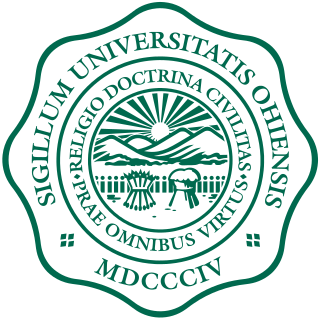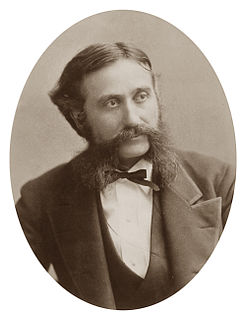
Hubert Howe Bancroft was an American historian and ethnologist who wrote, published and collected works concerning the western United States, Texas, California, Alaska, Mexico, Central America and British Columbia.
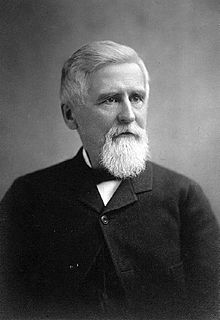
Henry Charles Lea was an American historian, civic reformer, and political activist. Lea was born and lived in Philadelphia.

William Holmes McGuffey was a college professor and president who is best known for writing the McGuffey Readers, the first widely used series of elementary school-level textbooks. More than 120 million copies of McGuffey Readers were sold between 1836 and 1960, placing its sales in a category with the Bible and Webster's Dictionary.

Alice Cary was an American poet, and the older sister of fellow poet Phoebe Cary (1824–1871).
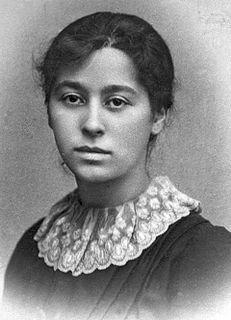
Amy Judith Levy was a British essayist, poet, and novelist best remembered for her literary gifts; her experience as the first Jewish woman at Cambridge University and as a pioneering woman student at Newnham College, Cambridge; her feminist positions; her friendships with others living what came later to be called a "New Woman" life, some of whom were lesbians; and her relationships with both women and men in literary and politically activist circles in London during the 1880s.
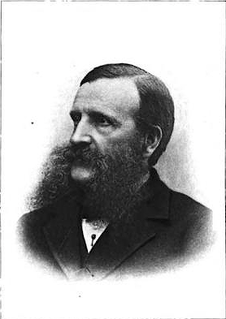
William Frederick Poole was an American bibliographer and librarian.

William Winter was an American dramatic critic and author.
Samuel Hannaford was an American architect based in Cincinnati, Ohio. Some of the best known landmarks in the city, such as Music Hall and City Hall, were of his design. The bulk of Hannaford's work was done locally, over 300 buildings, but his residential designs appear through New England to the Midwest and the South.

G. W. & W. D. Hewitt was a prominent architectural firm in the eastern United States at the turn of the twentieth century. It was founded in Philadelphia in 1878, by brothers George Wattson Hewitt (1841–1916) and William Dempster Hewitt (1847–1924), both members of the American Institute of Architects. The firm specialized in churches, hotels and palatial residences, especially crenelated mansions such as Maybrook (1881), Druim Moir (1885–86) and Boldt Castle (1900–04). The last was built for George C. Boldt, owner of Philadelphia's Bellevue-Stratford Hotel (1902–04), G.W. & W.D. Hewitt's most well-known building.

Sarah Morgan Bryan Piatt was an American poet. Sometimes publishing under "Sallie M. Bryan", she was a prolific and popular poet during her lifetime, associating with prominent literary figures in the United States and abroad. During her career, she published some 450 poems across eighteen volumes and in leading periodicals of the day.

Benjamin Tupper was a soldier in the French and Indian War, and an officer of the Continental Army during the American Revolutionary War, achieving the rank of brevet brigadier general. Subsequently, he served as a Massachusetts legislator, and he assisted Gen. William Shepard in stopping Shays' Rebellion. Benjamin Tupper was a co-founder of the Ohio Company of Associates, and was a pioneer to the Ohio Country, involved in establishing Marietta, Ohio as the first permanent settlement in the Northwest Territory.
American pioneers to the Northwest Territory included soldiers of the Revolution and members of the Ohio Company of Associates. During 1788 these pioneers to the Ohio Country established Marietta, Ohio, as the first permanent American settlement of the new United States in the Northwest Territory, and opened the westward expansion of the new country. General George Washington commented about these pioneers: "I know many of the settlers personally, and there never were men better calculated to promote the welfare of such a community." General Lafayette of France, who fought with the Americans during the Revolution, visited Marietta on his US tour during May 1825 and described these pioneers and former officers: "They were the bravest of brave. Better men never lived."
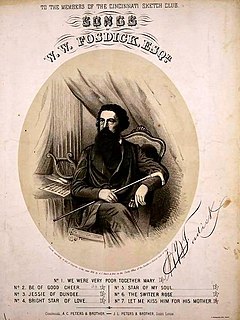
William W. Fosdick was an American lawyer, poet, writer and song lyricist, primarily remembered today as the writer of original lyrics to the song Aura Lea to a melody composed by George R. Poulton.

Charles Whittlesey was a soldier, geologist and an investigator of mounds relics of the United States. He is described by Ephraim George Squier and Edwin Hamilton Davis in their book Ancient Monuments of the Mississippi Valley as a "zealous investigator" in the field of "American antiquarian research."
Charles C. Crapsey was an American architect known for his church designs. He trained under James K. Wilson from 1865–1873, worked on his own between 1873–1888, and then with Wilson again from 1895-1901. He worked with William R. Brown from 1889–1895 and with E. N. Lamm from 1901-1909. His work is distinctive for its creative combinations of shaping, massing, and materials, and Crapsey is known especially for his design of churches. He was born in Fairmount, Ohio and died in Cincinnati.

Anselm Tupper (1763–1808) was an officer of the Continental Army during the American Revolutionary War, a pioneer to the Ohio Country, and one of the founders of Marietta, Ohio, the first permanent American settlement in the Northwest Territory. The eldest son of Benjamin Tupper, Anselm enlisted in the fight for independence during 1775, while only eleven years old, achieving the rank of lieutenant before his seventeenth birthday. After the war, he was a pioneer and surveyor in the Northwest Territory, and became major of the militia at Marietta during the Northwest Indian War. Tupper was the first school teacher at Marietta, and was a classical scholar and poet. He was unmarried, and was known as a favorite in society.

Ancel Henry Bassett was a Methodist minister, author, editor, and historian who left the Methodist Episcopal Church to join the Methodist Protestant Church soon after its founding in 1830. He became an influential leader of that denomination, editing one of its primary periodicals, the Western Recorder. In 1875, the General Conference of the Methodist Protestant Church requested that he write and publish a denominational history, which was published in 1877.
Robert Clarke & Company was a book publishing company and bookseller in Cincinnati, Ohio from 1858 to 1909. After 1894, it was known as The Robert Clarke Company. It published literary and historical works.

Alice Williams Brotherton (1848–1930) was an American author of poetry, essays, reviews, children's stories, and lyrics. Though she hailed from Indiana, she lived most of her life in Cincinnati, Ohio, serving as president of the Cincinnati Woman's Press Club. She wrote wrote critical essays and addresses on Shakespeare, while many of her poems were set to music in the United States and in England. Contemporary poets of Ohio included Helen Louisa Bostwick Bird and Kate Brownlee Sherwood.

Abba Goold Woolson was a 19th-century American writer from Maine. Woolson published several volumes, including: Women in American Society (1873); Dress Reform (1874); Browsing Among Books (1881); and George Eliot and Her Heroines (1887).

The Library of Congress (LOC) is the research library that officially serves the United States Congress and is the de facto national library of the United States. It is the oldest federal cultural institution in the United States. The Library is housed in three buildings on Capitol Hill in Washington, D.C.; it also maintains the National Audio-Visual Conservation Center in Culpeper, Virginia. The Library's functions are overseen by the Librarian of Congress, and its buildings are maintained by the Architect of the Capitol. The Encyclopedia Britannica describes the Library of Congress as the largest library in the world, and the library describes itself as such. Its "collections are universal, not limited by subject, format, or national boundary, and include research materials from all parts of the world and in more than 450 languages."
The public domain consists of all the creative works to which no exclusive intellectual property rights apply. Those rights may have expired, been forfeited, expressly waived, or may be inapplicable.
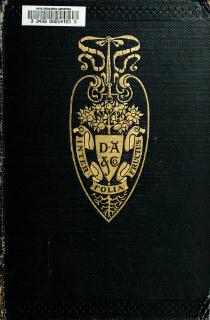
Appletons' Cyclopædia of American Biography is a six-volume collection of biographies of notable people involved in the history of the New World. Published between 1887 and 1889, its unsigned articles were widely accepted as authoritative for several decades. Later the encyclopedia became notorious for including dozens of biographies of people who had never existed. The apostrophe in the title is correctly placed and indicates that more than one person, i.e. a company, authored the work.




